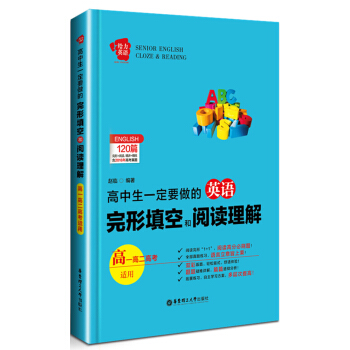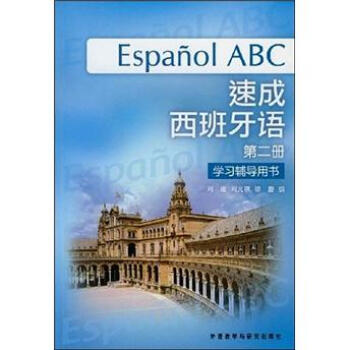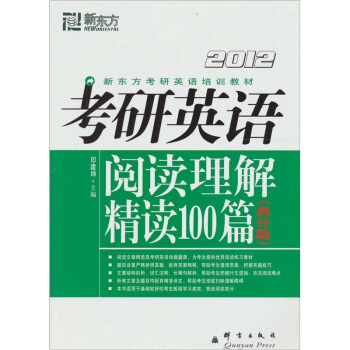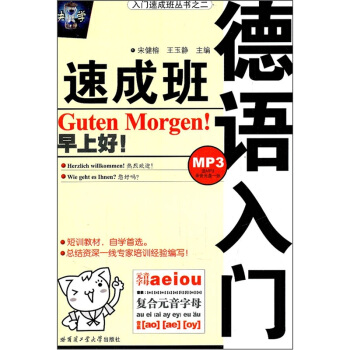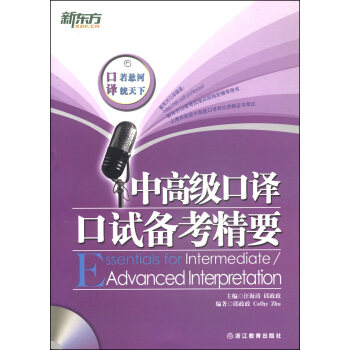![心灵鸡汤:路过心上的美丽英文 [Chicken Soup for the Soul:Find Your Happiness]](https://pic.windowsfront.com/11436294/rBEhV1M6MuIIAAAAAAkB8gQt3F4AALJfwKMhGoACQIK716.jpg)

具体描述
编辑推荐
《心灵鸡汤》系列发行56个国家,被译为40多种语言。全球热销上亿册,是美国乃至世界各国公认的心灵成长读物。该丛书连续七年蝉联美国热销榜第1,有以下三大优势:
暖心的精神读本:
每一个故事都凝结着作者真切的人生体悟,平实真挚的语言中蕴含着感人至深的人生哲理,直抵你的内心,让你不再焦虑,并铭记这些路过心上的感动。
真诚的人生激励:
平凡人的故事,往往才是动人的。书中收罗了数十篇关于追寻幸福、战胜苦厄的文章,让你在阅读后,学会好好关照自己,鼓起前行的梦想与勇气。
地道的双语美文:
纯正的美式英语,中英双语对照,在欣赏英语美文的同时,让你的写作能力获得潜移默化地提升,锻炼你的阅读语感。
《心灵鸡汤:路过心上的美丽英文》汇集了50个与快乐人生有关的故事,每一段故事背后都是一部娓娓道来的个人历史。细细聆听,你将发现原来幸福就在身边,需要你勇敢去追寻与体悟。
内容简介
《心灵鸡汤》系列发行56个国家,被译为40多种语言。全球热销上亿册,是美国乃至世界各国公认的心灵成长读物。
《心灵鸡汤:路过心上的美丽英文》汇集了50个与快乐人生有关的故事,每一段故事背后都是一部娓娓道来的个人历史。细细聆听,你将发现原来幸福就在身边,需要你勇敢去追寻与体悟。
作者简介
杰克·坎菲尔德,是“心灵鸡汤系列丛书”的创始人之一,这套丛书被《时代》杂志赞誉为“近十年来是出版业的神话”。他还参与编写了另外八本畅销作品。
马克·维克多·汉森,同杰克·坎菲尔德一样,是“心灵鸡汤系列丛书”的创始人之一。他是一个备受追捧的演讲人、畅销书作者、市场营销专家。他关于可能性、机遇、行动的具有冲击力的见解,已经为全球成千上万人的人生带来了神奇的改变。
艾米·纽马克,是“心灵鸡汤系列丛书”的出版人,拥有三十年的从业经历,其身份包括作家、演讲人,以及金融与电信领域的金融分析师和业务主管。
内页插图
目录
Foreword
前言
Chapter 1 The Joy of Giving
第一部分 给予的快乐
01. A Deed a Day
日行一善
02. It’s What We Do
这是我们的使命
03. A Friend in Need
患难之友
04. Always Something to Give
总有能付出的东西
05. New York City’s Greatest Underground Secret
纽约地下的大秘密
06. Just One Loaf
一个面包
07. It Was Nothing
这没什么
08. Feeling Better, Bag by Bag
一包一包,越来越好
09. Finding My Mantra
找到我的祷语
Chapter 2 Finding My Purpose
第二部分 找到生活的目的
10. I Don’t Quit
我永不言弃
11. Filling a Need
满足需求
12. Finding Me
找到自己
13. A Ride on a Carousel
旋转木马
14. Too Dumb to Be a Nurse
太笨了,当不了护士
15. Hugs, Hope, and Peanut Butter
拥抱,希望,花生酱
16. Listening to My Heart
听从内心的呼唤
17. You Go Girl!
姐姐加油!
18. Reclaiming Myself
重拾自己
19. My Detour to Destiny
绕道回归命运
Chapter 3 Simple Pleasures
第三部分 简单的快乐
20. The Small Things
一些小事
21. The No-Share Zone
独享区
22. Treasure Hunting
寻宝游戏
23. The Returning Light
光芒重现
24. Everyday Miracles
每天都有奇迹
25. A Remodeled View
焕然一新的风景
26. A Perfect Ten
完美的10 码
27. Pockets of Happiness
装在口袋里的幸福
28. Authentic Happiness
真正的幸福
29. Sometimes Bliss Is a Place
有时候幸福是个地方
Chapter 4 Making the Best of It
第四部分 随遇而安
30. From Illness Comes Strength
疾病给人力量
31. Seeing My Purpose
看到我的目标
32. Here I Stand
我站在这里
33. Listening to My Inner Passion
听从我内心的激情
34. How I Talked My Way to Happiness
我是怎样通过聊天找到幸福的
35. A New Best Friend
新交的好朋友
36. Peter Pan
彼得·潘
37. No Longer Waiting for Godot
不再等待戈多
38. The Girls on the Bus
公交车上的女士们
39. The Palm Tree
棕榈树
Chapter 5 Jumping off the Hamster Wheel
第五部分 跳下仓鼠滚轮
40. What If You Won the Lottery
要是你中奖呢
41. New Rewards
新的回报
42. Rewriting My Future
重新书写我的未来
43. Last Call
最后的晚宴
44. When I Grow Up I Will Be a Professor
长大以后我要当个老师
45. I Chose Love
我选择爱
46. A Paltry Price for Personal Peace
微小代价换来平和心灵
47. What Do You Do?
我是做哪一行的?
48. Ripe for a Change
做好准备,迎接改变
49. My Secret Love Affair
我的秘密情史
50. A Final Word
写在最后的话
Meet Our Contributors
见见我们的投稿者
Meet Our Authors
见见我们的作者
About Deborah Norville
黛波拉·诺维尔简介
Thank You
感谢词
Improving Your Life Every Day
每天改善你的生活
Share with Us
与我们一同分享
精彩书摘
Sometimes Bliss Is a Place
有时候幸福是个地方
You can fall in love at first sight with a place as with a person.
—Alec Waugh
I’ve always been something of a wanderer. I’ve lived in a lot of different places, most of them interesting… but none of them permanent. Of course, unlike other sensible wanderers, I’ve also accumulated artifacts of my interesting homes, mostly in the form of books.
Books, as even the most casual observer would agree, make moving around a little more of a daunting proposition. Well, that’s true, at least for normal, sane people. Not for me, however, which says something about my sanity: I accumulate books the way other people accumulate postcards, and I’ve always been undaunted by my library. The inevitable result is that I know more about packing and carrying cartons of books than do most moving professionals. Put them in storage? Surely you’re not serious! Mybooks are my friends, creased and underlined and marked up, read and re-read and quoted and shared. Where I go, they go.
So I spent years moving about and happily experiencing various lives and loves and accumulating wisdom, experience… and more books. And while every place I lived touched me in some way, I always left when it felt like it was time to leave.
Minor digression: the English author Phil Rickman, one of my favorite people in the world, writes amazing suspense novels that are guaranteed to keep you up late at night—I highly recommend them—but one of the things that’s the most noticeable in his books is their venues. The landscape, the place, is as much a character in his stories as are any of the people.
I love reading about the places he describes, about those remote places he makes accessible to me, and I’ve always felt instantly connected to the places he writes about; but at the end of the day I couldn’t particularly relate to them.
And so I packed my Phil Rickman books with the rest of my library and moved again. And again.
And then I went to spend a winter in Provincetown, Massachusetts. Provincetown is truly land’s end—it’s at the tip of Cape Cod, and it feels like the tip of the world. It’s the first place that the Pilgrims landed, well before
Plymouth, and the last place one reaches before the Atlantic Ocean… beyond it, there’s nothing but waves and whales before Portugal. It’s not a place that people come by accident; no one “happened” to stop there as they were passing through, because it’s not a place that’s on the way anywhere else.
People, I learned, go to Provincetown deliberately: to heal, to find love, to find peace, to find themselves. People go there to live and they go there to die. But no one is there accidentally.
Provincetown is at the edge of land, the edge of the sea, the edge of the world. And there I went, thinking that I was going to a quiet place to spend the winter, an isolated wild place to write. Nothing more than that.
Almost magically, my first morning there, I innocently tuned my stereo to the local community radio station and heard Dave Carter’s song “Gentle Arms of Eden” and after that I went down to walk out on the pier and by the harbor and… well, the reality is that something happened.
Perhaps I merged the lyrics of the song I’d just heard—words that talked about this being my home, my only home, sacred ground that I’d be walking on—and perhaps I integrated Phil Rickman’s sense of place, which so permeated my consciousness, but suddenly I was enveloped by an incredible warmth, an amazing sense of being exactly where I should be. And—this was new for me—not just “where I should be right now,” but, rather, “where I should be. Period.”
As the days passed, the feeling intensified, and with it a sense of wellbeing that I had never experienced before. This was where I belonged, where I fit in, just like a missing piece to a puzzle.
I got involved in the community, met people, made friends. I walked the beach in the vilest weather, my coat wrapped tightly around me, the sand stinging my face, and I never felt so alive. I sat in my aerie and wrote and wrote and wrote… finishing the novel I’d originally gone there to write, and letting more projects flow and fall into place… a short story, an article, essays, poems… it was as though the place had unlocked everything that was real and vital and creative inside me.
And after months and months of living there—after years and years of wandering—I finally put down roots and bought a house. An old sea captain’shouse, built in 1835, where I finally built the library of my dreams, floorto- ceiling shelves filled with my friends, filled with stories and tales and information that fed my life and imagination.
And as I settled in, suddenly I understood Phil Rickman’s portrayal of place as a character in a story, for I felt that I was entering into a relationship with this place. Every day I woke up and was immediately aware of where I was, enjoying the sun shining through my windows and illuminating the myriad spines of books on my shelves, and realizing that within ten minutes I could be walking on a beach on the ocean side of the Cape.
And I fell in love.
So many people attach their bliss to falling in love with a person. That is the fairytale mentality of western civilization, but that’s not what happened to me: I became happy once I fell in love with this place.
The world—the wide world that I’d spent most of my life exploring— suddenly became focused on one place. All my life, I’d been looking for something, and I never knew what it was… and then, suddenly, I seemed to have found it, without ever having articulated—even to myself—what I was looking for.
And yet I finally found happiness in this place. Every morning I wake up and smile, because I live in paradise and get to spend my day doing exactly what I love doing. I start my days early, with a walk on the beach where I watch the sun rise, no matter what the weather is: I love the ocean in the calm summer months as well as in the wild winter ones. The sun up, I go back to my wonderful house where I eat and drink and start writing. In summer months, I watch the bees from my hives fly out on their mission to pollinate the vineyard next to where I live; in winter, I look out over undisturbed snow and stillness and beauty. And no matter what the season, it all encompasses me in its embrace: this is where I belong. As those long-ago words from Dave Carter’s song told me, this is sacred ground.
I’ve found my happiness, my bliss. I was raised to believe that I would find it in another person, and that has not happened; but I have found it in a place, my home, my very being.
And that’s not such a bad thing after all.
—Jeannette de Beauvoir
……
前言/序言
序言
有人追求幸福,有人创造幸福。
——玛格雷特?鲍恩
我们都知道,美国宪法中赋予了每个人追求幸福的权利。当我还是个孩子的时候,每每把东西弄得一团糟,我就会对母亲说我是在“追求我的幸福权”,而我的母亲也并不觉得我的解释好笑。她很聪明地告诉我,如果我想要享受生活或者享有自由,我也要先把这个烂摊子收拾干净!有谁不想获得幸福呢?人人都想幸福生活,不仅如此,幸福本身也能带来一些绝佳的好处。研究表明,幸福可以让人增加九年的寿命!
当你拿起这本书时,可能希望书中的故事可以照亮你的生活,或者引领你走上新的道路,可以让你比现在过得更快乐、笑得更开怀。这本书中收录了51个故事 ,这些精心挑选的故事将会告诉你,通往幸福的道路有很多条。读过这些故事后,你会更加想要整装待发,去寻找属于你的道路——以及属于你的目的地。
有人追求幸福,有人创造幸福。想想玛格雷特?鲍恩这句话,再问问自己:“哪一种人更幸福呢?是追求幸福的人,还是创造幸福的人?”如果你想不出的话,可以看看亨利?戴维?梭罗的话,在我读高中和大学的时候,我在墙上贴了印有这句话的海报:
幸福就像蝴蝶:你越是追逐它,它越是躲着你,但一旦你把注意力转移到其他东西上,它就会飞过来,轻轻落在你的肩上。
你可能努力想要获得幸福,但结果也许却让你十分沮丧。“别担心——要开心”,这句话做歌词很贴切,但对于那些生活没有激情的人来说却并不管用。你不能简简单单“要”开心。但是你可以转移注意力——转移到正确的事情上——然后你就会发现幸福找到了你。那什么是正确的事情呢?我们很快就会讲到那里,但是现在我们要说一条重要的真理:在幸福这件事上,过程就是结果。
想想有点不可思议,《心灵鸡汤》负责人竟然找我来写前言,这本书是关于找到幸福的,但我有一段时间特别不幸福。可能我都有点绝望了。我心情已低落到都不愿去寻求专业人士的帮助。事业毫无起色,电话不再响起,我觉得我再也不会工作了。到底发生了什么改变了一切呢?难道是我某天醒来,化好妆,冲到电视演播室说:“我回来了!让我上电视!”吗?
而事实不是这样的。相反,我拿出了我的缝纫机。在我极度低落的时候,我拿出了我以前的缝纫机,又翻出一些布,然后就开始做窗帘和椅套。踩踩踏板,就会有很多种缝合的方法。当你看到这几小时的工作成果后——新做的椅套让破旧的椅子焕然一新,新做的窗帘给空荡荡的房间增色不少——你不由自主地就会对你的工作,以及你自己感觉很好。
这很久以前给我带来快乐的事重新点燃了我遗失已久的激情。打八岁起,我就开始缝纫、刺绣、编织。让缝纫机重见天日,让我想起以前缝缝补补的愉快时光,也帮我打起了精神。有人追求幸福,有人创造幸福。重拾很久以前的兴趣让我很开心,但这也是我开始做这些事时所没有想到的。不经意间,我创造了自己的幸福。
惊喜的元素与幸福密不可分。如果查一下“happy”(幸福) 这个词的词源,你会发现它是由古斯堪的纳维亚语中的“happ”这个词而来,意思是“际遇”或“无法预见的事情”。机缘巧合,我们遇到了幸福。就像那只蝴蝶,追逐时反而难以捕捉。
另一个秘密是:总是想做到最好,你就不会幸福。足够好就足够了。斯沃斯莫尔学院的巴里?施瓦茨教授通过研究找到了他称为“完美主义者”的人和容易满足的人之间的一些主要区别。所谓“完美主义者”,即那些一定得拥有最好的东西,一定得面面兼顾的人。正是因为他们总是想要“最好的”,这些完美主义者一年大约能多挣7000美元,不过他们的心情相对更糟糕。他们不像我们这些愿意“止步”的人一样感到幸福。做出选择的煎熬加上以后后悔的可能性让财富增加带来的快乐消失殆尽。
那么,什么可以帮你找到幸福呢?我的方法如下:
细数幸福的事——幸福是螺旋式上升的,幸福本身可以带来幸福。时常记录生活中的“好事”,人会更健康,更有活力,工作更富成效——别人的评价也会更高。这些会让我觉得幸福,你应该也是吧?所以,记录下生活中的美好,看看事情会不会越来越好。这本书中有许许多多的事例,说明这条原则对很多人有效。
与他人建立联系——毫无疑问,与他人建立联系会丰富我们的生活。强大的人脉和互相分享的经历是幸福的基础。所以拿起电话吧,或者给老朋友发封邮件吧。
了解自己,追随激情——要“找到属于你的幸福”,首先要知道什么能让你幸福。也许德国哲学家歌德的话能对你有所帮助:只要你相信自己,你就会懂得如何生活。拿出笔和笔记本,试着回答这些问题:你对什么有激情?过去有什么能让你开心?你擅长什么?很久以前你有没有放弃过什么梦想,因为它们不切实际、异想天开、“永远无法实现”?忘掉那些过去和你唱反调的人说过的话吧。你的答案可以帮你设计一段新的旅程,并且找到幸福。做的过程与结果同样都会带来快乐。
不断学习——不前进就会倒退。毫无疑问,那些有目标、有挑战的人会比那些安于现状的人觉得生活更加充满激情。你会喜欢简?康多恩的故事,她放弃了一份让自己不快乐的工作,在66岁时即将迎来自己第一本书的出版。
找到意义——那些找到人生意义和目的的人是幸福的,就是如此。你可以像“日行一善”的香农?安德森一样,走出自己,找到意义所在。你会读到香农第一次告诉家人做好事的益处的故事,以及后来她启发所有的一年级学生去做好事,并为他们写日记的故事。孩子们可喜欢这样做了!拉尔夫?沃尔多?爱默生力劝我们:让自己成为别人需要的人。予人玫瑰,手有余香。可能你觉得你的工作或职业没有意义,也有可能你的工作不适合你。即使是处于薪金和地位最底层的医院清洁工,只要能看到自己的贡献对整座医院很重要,就都会觉得自己的工作富有挑战、需要技巧。
找到宁静——中国人有句话很不错:静水流深。无论你周围的环境如何嘈杂繁忙,现在请闭上眼睛,想象你身处一片葱葱郁郁的森林深处,坐在一块长满青苔的石头上,听着远处溪水欢快地流淌。深呼吸,静坐,忘掉生活中的一切“琐事”,别为那排满了的时间表而担心。深呼吸,这种短时小练习可以帮你平静一些,让你感觉不那么疲惫了。记住,要是你总是疯狂地忙来忙去,那只名叫“幸福”的蝴蝶不会飞来落在你的肩膀上。
——黛波拉·诺维尔
用户评价
这本书的结构处理得非常巧妙,它不像传统散文集那样线性推进,更像是一个精心布置的画廊,每走一步都有新的惊喜。我特别欣赏它在不同主题之间的过渡,那种自然而然的切换,仿佛是微风吹过草地,带着不同的气息。有那么几个瞬间,我感觉自己像是在听一位经验丰富、阅历丰富的前辈在分享他们的人生感悟,他们的语气里没有丝毫的说教意味,只有一份真诚的关怀和对世界运作规律的洞察。有些篇章的叙述语言极其凝练,寥寥数语就能勾勒出一个完整的情境和复杂的情感漩涡,这种文字功力令人赞叹。我甚至会忍不住抄录下一些句子,不是为了炫耀,而是为了在心情低落时能迅速地将自己拉回那种被清晰、精准的文字所支撑的稳定感中。对我而言,阅读这本书的过程,更像是一次对自身情感词汇库的丰富和校准,它教会我如何更准确地命名那些曾经模糊不清的内心感受。
评分说实话,我是在一个极其疲惫的周五晚上,几乎是抱着“随便翻翻”的心态开始接触这本册子的。我本来以为,这又是一本充满陈词滥调、用空泛的积极情绪来搪塞现实困境的读物。然而,出乎意料的是,它所呈现的视角是如此的接地气,充满了生活本身的质感。它没有回避那些人生的“小刺儿”,反而像是带着一双温暖的手,轻轻拨开那些刺,让你看到刺下面藏着的露珠。我记得其中某个小篇幅里描述了一个关于“等待”的场景,那个细腻的心理活动描写,简直就像是作者在我耳边低语,准确捕捉到了那种焦躁、自我怀疑,最终在耐心等待中收获的平静。这种“被理解”的感觉,远比任何宏大的口号都来得有力。我喜欢作者叙事中的那种克制,他们懂得适可而止的艺术,从不把话说满,留下了足够的空间让读者自己去填补情感的空白。这种留白,使得这本书成为了一个开放式的对话空间,而不是一个封闭的说教平台。我发现自己读完一个故事后,会习惯性地停下来,望着窗外发呆,思绪自然地回溯到自己人生中相似的某个片段,那种共鸣是极其深刻且私密的。
评分我通常对“疗愈系”书籍抱有一种警惕,因为很多这类作品往往过度美化了痛苦,或者提供了一种不切实际的逃避方案。然而,这本书给我的感觉是,它真正关注的是“过程”,而不是僵硬的“结果”。它更像是陪伴你度过一段崎岖山路的向导,而不是直接把你空投到山顶。我注意到,书中引用的很多场景和意象都来源于日常的、微不足道的细节——可能是一片落叶,可能是一句不经意的对话,也可能是一次独自漫步的经历。正是这些极其生活化的切入点,使得它的深刻性得以潜移默化地渗透。我发现自己开始对周围的环境变得更加敏感,不再是机械地“看到”,而是开始“观察”和“体会”。比如,前几天我注意到办公室里新来的绿植,它在空调环境中挣扎生长的状态,突然就让我想起了书中描述的一种“韧性”的概念,这种在日常中建立起来的新的连接感,是我阅读这本书最意外的收获。
评分翻开这本书的时候,我其实带着一种略微的怀疑和一丝丝的期待。最近生活中的小确丧有点多,感觉整个人都被一层薄薄的灰蒙蒙的东西罩住了,急需一些“心灵的抚慰”来提提神。这本书的封面设计得非常温馨,那种柔和的色调和简洁的排版,一下子就让人感到放松,仿佛走进了一个安静的、没有外界纷扰的小花园。我尤其欣赏它选择的字体,既有现代感又不失亲切,阅读体验非常好。装帧的质量也看得出来是下过功夫的,拿在手里很有分量,但翻页却很顺滑,这对于沉浸式阅读来说至关重要。我通常不是那种会立刻被励志口号打动的人,但我喜欢这类书籍能提供的“微光时刻”——那些不经意的瞬间,让你突然觉得,啊,原来生活还可以这样被温柔地对待。我花了点时间来适应它的节奏,一开始我倾向于快速浏览,但很快我就发现,这种急躁是对作者不尊重的表现。我开始放慢速度,试着用一种更冥想的状态去接触这些文字,就像品尝一杯需要慢慢回味的茶,才能捕捉到其中最微妙的香气。这种阅读过程本身,就构成了一种非常独特的疗愈体验,它不是强行灌输,而是温柔的邀请,邀请你审视自己的内心,看看那些被忽略的美好角落。
评分购买这本书之前,我研究了很久,因为我实在不想再浪费时间在那些肤浅的“正能量”上。我更看重的是文字的“密度”和“温度”。这本书在这两方面都做得非常出色。它的文字密度极高,每一个词汇的选择都似乎经过了深思熟虑,没有一句废话,但读起来却完全不觉得枯燥晦涩。而它的“温度”,则是那种经过时间沉淀后的温暖,不是初春的乍暖还寒,而是深秋壁炉边的那种稳定而持久的热量。我最欣赏的是,它似乎懂得“不完美才是常态”的道理。它不要求读者立刻变得完美无瑕,而是鼓励我们在摇摆不定中找到平衡,在迷失方向时允许自己停下来喘口气。这种接纳的态度,对于长期处于高压竞争环境下的现代人来说,是一种极其宝贵的精神食粮。这本书已经被我放在了床头柜上,成为一种固定的“精神锚点”,每当感到心绪不宁时,随意翻开其中一页,总能找到一处让我感到踏实和被理解的港湾。
评分不错,文章短小,适合小孩子睡前阅读。
评分非常好的一本书,读后很有收获。
评分东西很好,我很满意。
评分幸福是一种灵魂的香味,幸福日历,处处充满欢乐,细节的魅力,悲观也是福,开错的“心窗”,寻找最大的“麦穗”,花钱买快乐,每天抽出一小时,如果我不告诉你,你会知道吗?,不快乐的滑稽大师,幸福何来,重修旧好
评分价廉物美。物有所值,值得推荐。
评分《心灵鸡汤》杰克·坎菲尔、马克·汉森创作。是世界上最畅销的系列读物之一,以其简短、精炼的语言为读者讲述了一个个充满哲理的小故事。作者选文一直遵照的准则为:以浅显的语言表达着人间真情;以至深的情感述说着五彩人生;在每一个角落把真情的火炬点燃;让每一缕清香在尘世间流传;让真情在心灵的碰撞中凝固成永恒。 后泛指有益于精神或心理的充满哲理的小故事。
评分书没问题,就是包装简陋了点,有点破损。
评分东西很好,质量也很好,物流特快。
评分送给朋友用来学习一下英语的,还不错吧应该!
相关图书
本站所有内容均为互联网搜索引擎提供的公开搜索信息,本站不存储任何数据与内容,任何内容与数据均与本站无关,如有需要请联系相关搜索引擎包括但不限于百度,google,bing,sogou 等
© 2026 book.coffeedeals.club All Rights Reserved. 静流书站 版权所有

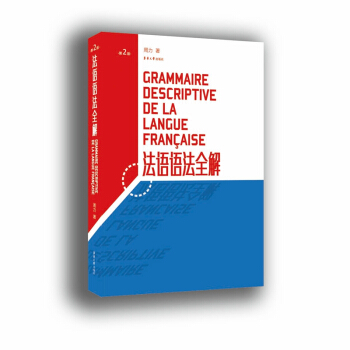
![不管三七二十一 零起点韩语入门就这么任性 这99句韩语不会怎么行? [韩语就该这样学!韩语40音不会怎么行?] pdf epub mobi 电子书 下载](https://pic.windowsfront.com/11897946/56f89b93N459740a2.jpg)





![中学英语组合训练 完形填空+短文填词(八年级) [Effective Training] pdf epub mobi 电子书 下载](https://pic.windowsfront.com/11744477/569dcb37N256d12e2.jpg)


![英语国际人:商务英语写作100主题 [100 Topics Business Writing] pdf epub mobi 电子书 下载](https://pic.windowsfront.com/10066061/2d7bd32c-b2a1-4558-918c-68099f1cc6d1.jpg)


